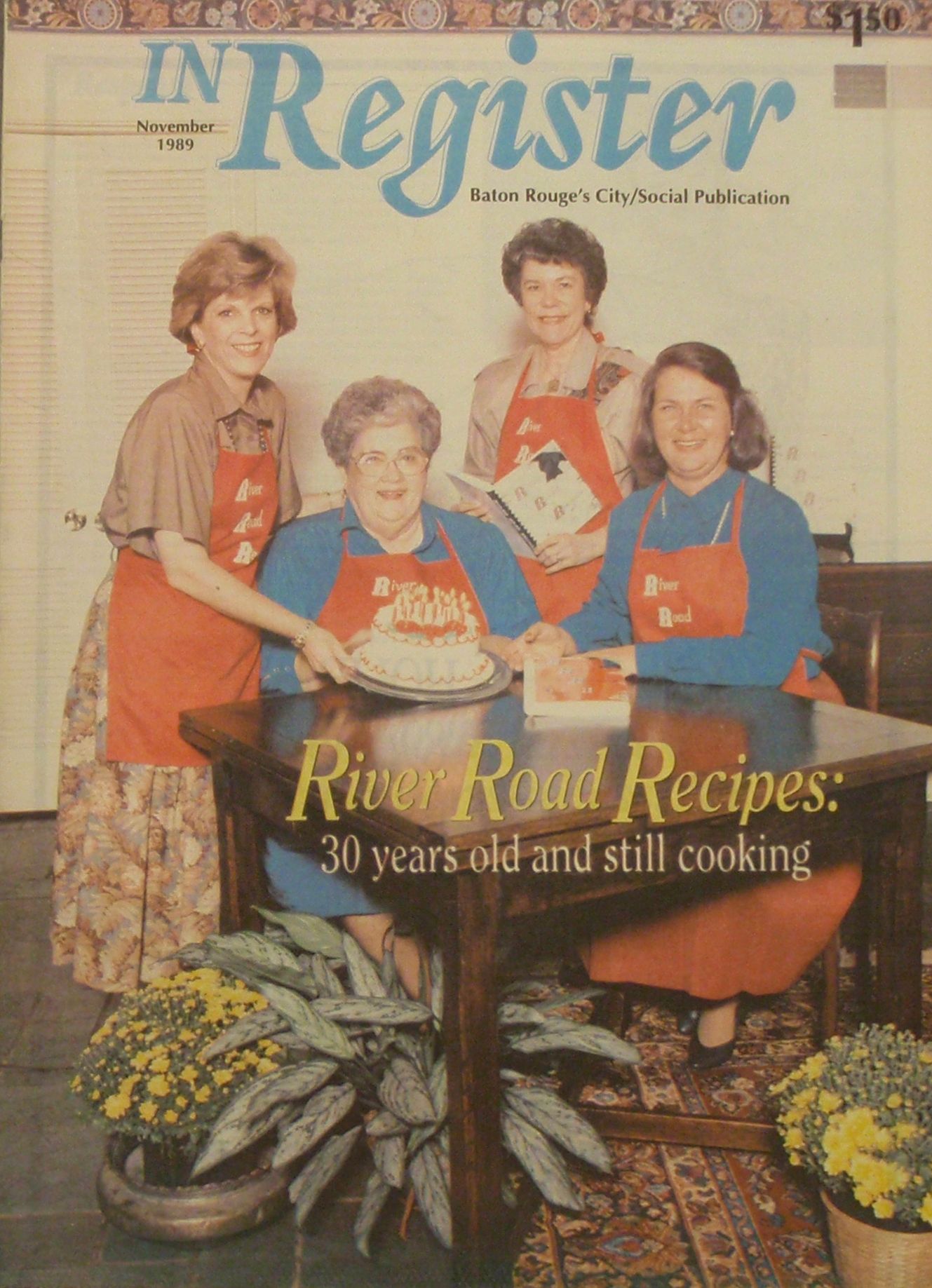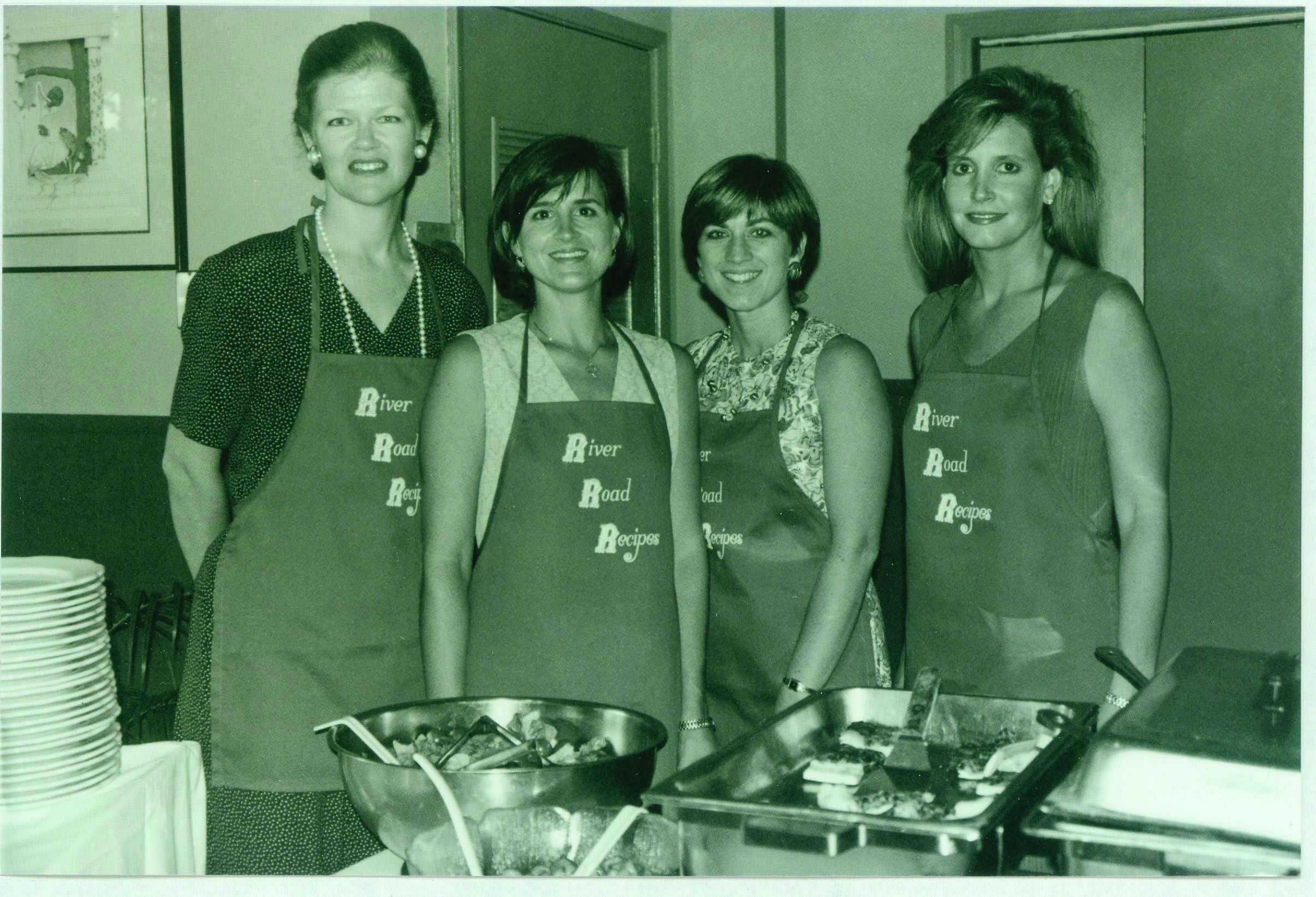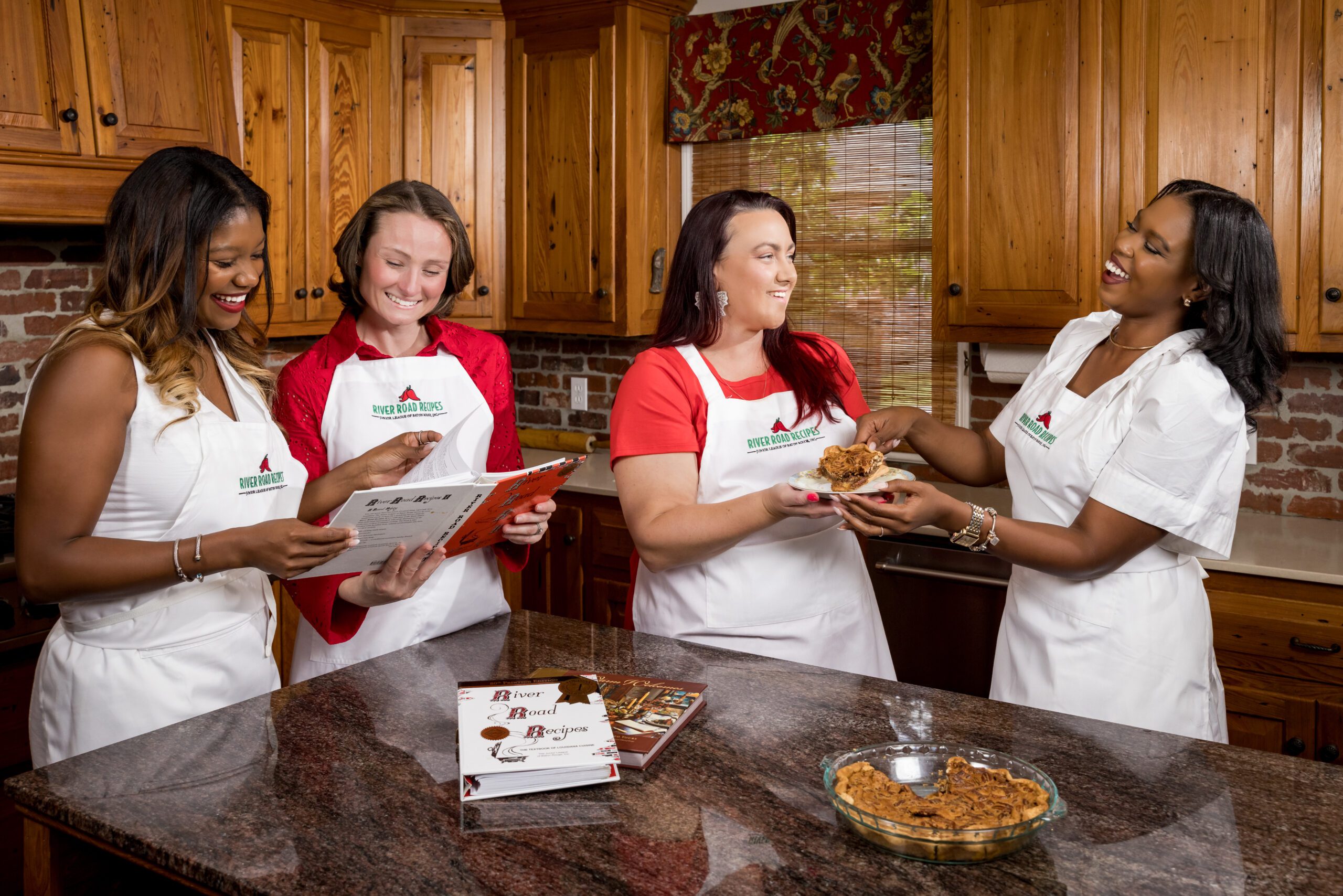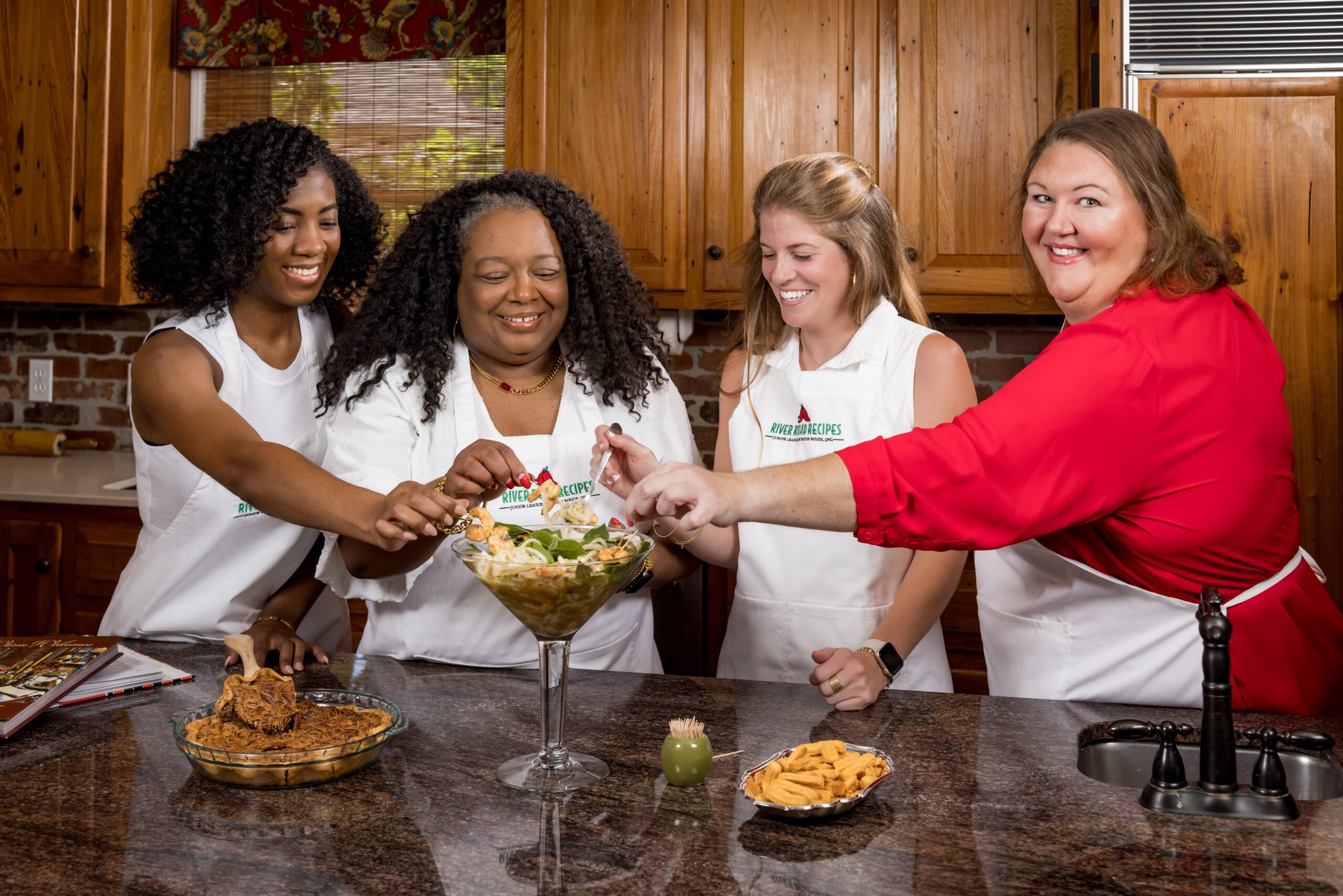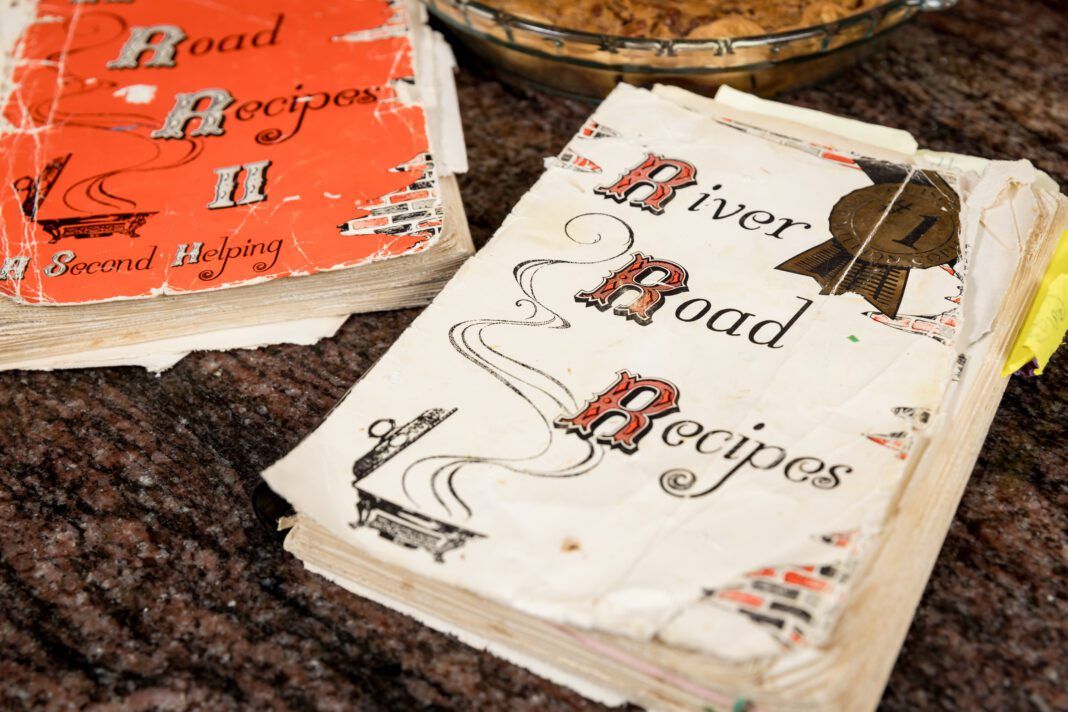
Junior League of Baton Rouge’s River Road Recipes sparked a phenomenon 65 years ago
It’s been a requisite wedding gift for generations of newlyweds, a rite of passage for budding cooks and a veritable historic record of Louisiana’s evolving culinary habits. River Road Recipes, the four-volume series published by the Junior League of Baton Rouge and the best-selling Junior League cookbook collection of all time, marks its 65th anniversary this year.
The inimitable series, often sitting dogeared and sauce-stained on home shelves, is the keeper of recipes like Spinach Madeleine, steadfast gumbos and etouffees, celebratory punches, party pick-ups, church supper casseroles and quirky desserts like Potato Chip Cookies and World’s Fastest Strawberry Mousse. Once the Junior League of Baton Rouge’s main source of philanthropic funding, River Road Recipes (1959), River Road Recipes II, A Second Helping (1976), River Road Recipes III: A Healthy Collection (1994) and River Road Recipes IV: Warm Welcomes (2004) have raised some $3.5 million to support Capital Region causes. Book revenue in the 1960s even helped found high-impact organizations like the Baton Rouge Speech and Hearing Foundation, the predecessor to the Emerge Center, and Louisiana Art & Science Museum.
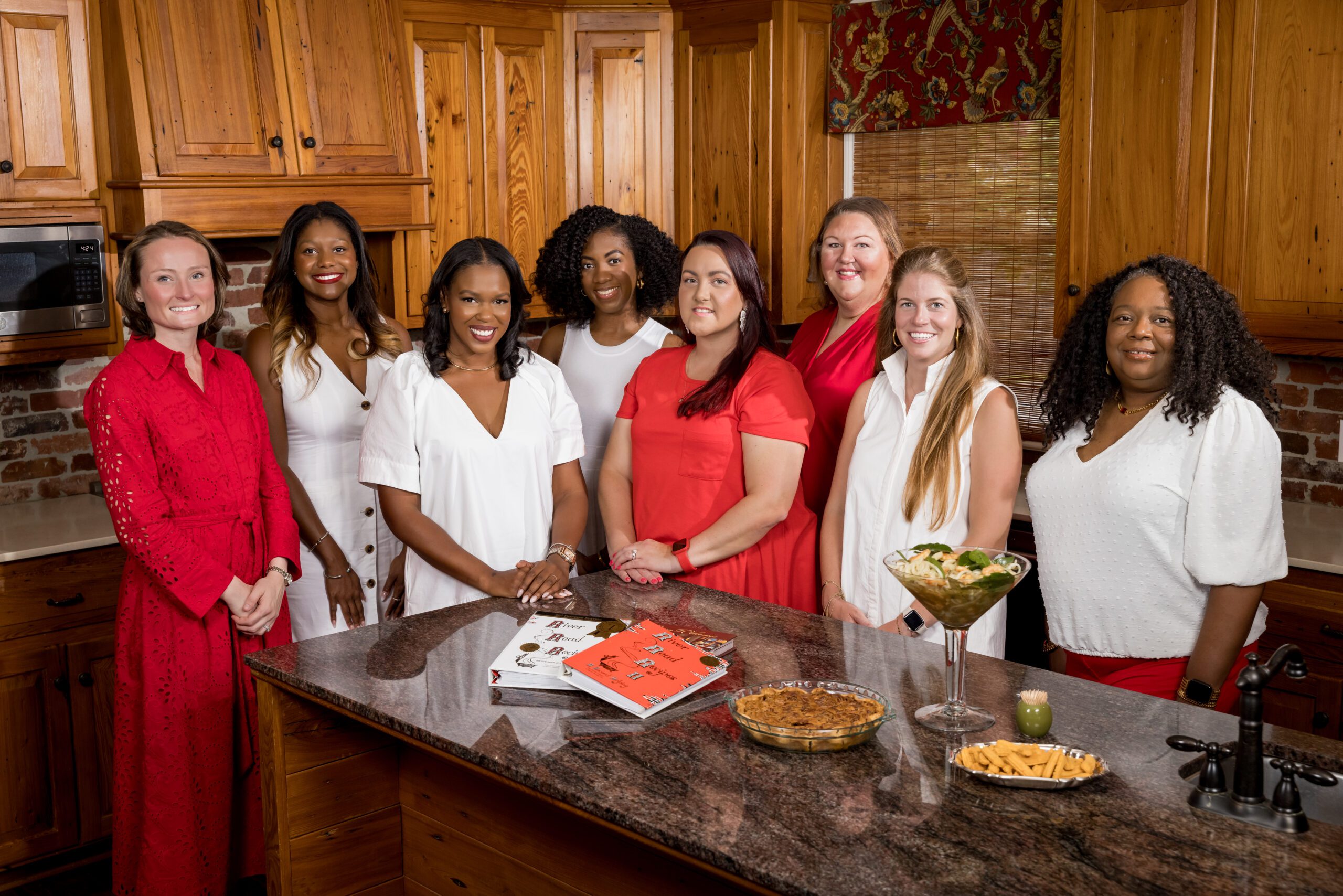
“The cookbooks are incredible,” Junior League of Baton Rouge president Emily LeBeau says, noting that the national Junior League organization is often credited with establishing these “community cookbooks,” with the first one published in Augusta, Georgia, in 1940. “The recipes celebrate our families, our histories and our culture. But they’ve also been a proving ground that we, as women, have the skill sets needed and the financial acumen to be successful and to pave our own ways.”
Few imagined that the original cookbook would become a nationwide phenomenon, selling 1.3 million copies and serving as a model for Junior League chapters nationwide. It was first devised by a small group of League members in the late 1950s who were looking for a fresh way to raise money.
Sustaining member Kay Collier’s mother, the late Jean Pearce Collier, was one of the 24 founding committee members. “They had been discussing doing a follies when my mother, and maybe others, too, said, ‘Let’s don’t do a follies. That’s overdone. Let’s do a cookbook,’” Collier says.
Members began submitting their favorite recipes and the cookbook committee put each one to the test. Jean Collier tested the poultry section, serving the results to her husband and three children.
The wild success of River Road Recipes created an indelible brand for the local Junior League. But after more than a decade, members didn’t want to rest on those laurels.
In 1971, a new committee began working on what would become River Road Recipes II, A Second Helping, published in 1976. Recipe submissions poured in, recalls sustaining member and former River Road Recipes II cookbook committee chair Donna Saurage.
“The first cookbook was such a success, and we wanted to build on it,” Saurage says. “Everybody was cooking and providing a full evening meal to their families then.”
Assiduous testing began, with testers completing evaluation sheets on each recipe’s quality. Approved recipes were typed by hand. Saurage created an indexing system using notecards that carefully cross-listed a recipe under all the possible search terms a home cook might use to find it.
Saurage also worked on the third volume of the cookbook, which deployed a registered dietician to lighten up classic Louisiana fare. The fourth volume reflected home cooks’ growing interest in glossy tomes with food photography and menu suggestions for entertaining.
In the 20 years since River Road Recipes IV was published, the world has naturally changed. Recipe hunting involves app-scrolling. Weeknight scratch cooking has been trumped by takeout. And the Junior League derives most of its fundraising from other sources, like its retail market, Hollydays.
But River Road Recipes remains iconic in Baton Rouge, says cookbook committee chair Chynsia Robertson. In fact, Robertson says a 2021 strategic plan conducted for the Junior League by branding firm MESH found that hard-copy cookbooks remain robust and haven’t been totally replaced by digital formats.
“People still want to have that book on their counter,” Robertson says. “These cookbooks are not just about sales, but about keeping alive the foods that we cherish here in Louisiana.”
Read on for two fan- and League-favorite recipes from the first edition of River Road Recipes.
Fun fact from the Junior League of Baton Rouge: You have to read each recipe and sometimes make appropriate modern edits. For this reason, today’s River Road Recipes lovers have cookbooks with plenty of notes in the margins. In the recipes featured here, some of the League members’ helpful notes are mentioned for your cooking ease.
Pecan Pie
By Mrs. John J. Seip
1 cup brown sugar
2 Tbsp. flour
1 Tbsp. butter
1 cup light corn syrup
3 eggs, beaten (Member note: Eggs should be room temperature.)
¼ tsp. salt
1 tsp. vanilla
1 cup pecan halves
1 unbaked pie shell
Cream butter with mixed sugar and flour; add syrup and eggs. Beat until frothy. Add salt, vanilla and pecan halves. Pour into 9-in. unbaked pie shell. Bake for 40 minutes at 325 degrees (member note: Adjust to 350 degrees.).
Pickled Shrimp
By Mrs. John Sutton
2 to 2 ½ lbs. raw shrimp
15 to 20 whole allspice
1⁄8 tsp. black pepper
Juice of ½ lemon and rind
15 to 20 cloves
6 buds garlic, sliced
3 small onions, sliced
2 large stalks of celery, crush or broken
2 large bay leaves
2 pinches dried or 1 sprig fresh thyme
Several sprigs parsley
Few bits dried red pepper
1 Tbsp. Worcestershire sauce
4 medium onions, sliced thin
Box of bay leaves
(Member note: Add 1 tsp. red pepper)
Season 2½ quarts of water with 3 Tbsp. of salt; then add above ingredients except the shrimp, 4 onions and box of bay leaves. Bring to a boil and allow to simmer 20 minutes. Add shrimp and bring to boil again; simmer 12 to 15 minutes (member note: adjust to 3 minutes). Cool and devein shrimp. In a large pan, arrange the shrimp in layers with 4 medium-sized onions sliced thin and the bay leaves. Pour over each layer the following sauce (all ingredients being combined):
1¼ cups salad oil (member note: This means olive oil.)
¾ cup warmed white vinegar
1½ tsp. salt
2½ tsp. celery seed
2½ Tbsp. capers and juice
Dash of hot sauce
¼ cup Worcestershire sauce
1 Tbsp. yellow mustard
After pouring sauce over shrimp, onions and bay leaves, cover pan and store in refrigerator not less than 24 hours.
Will keep for a week or more. When serving, arrange the entire mixture on large platter. Have cocktail picks handy. Nice with crackers. This is worth the time it takes.




